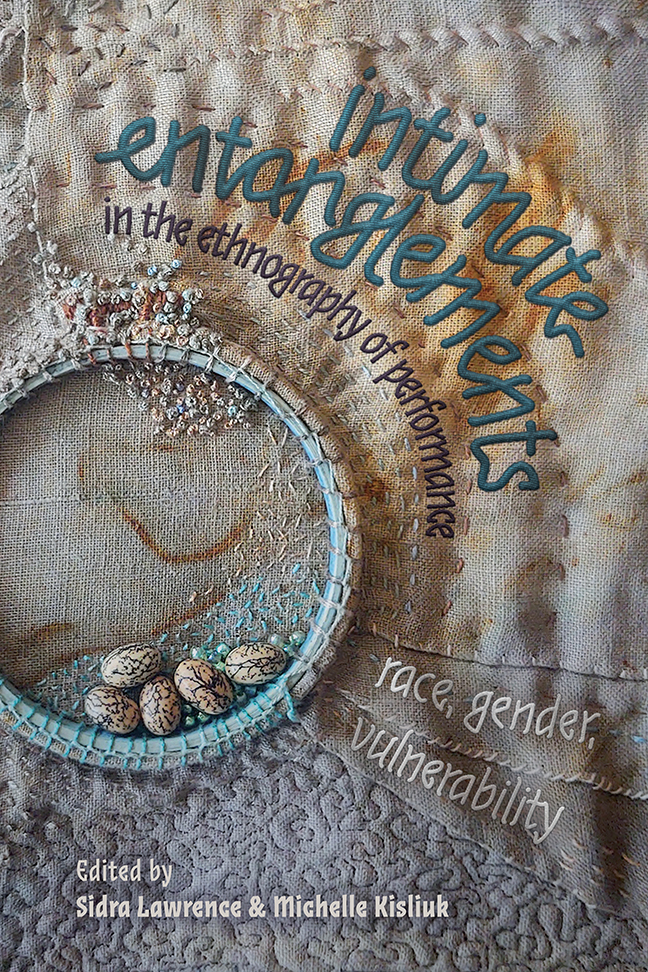Book contents
- Frontmatter
- Dedication
- Contents
- Foreword: Let It Get into You
- Acknowledgments
- Introduction: On Intimate Entanglements
- Chapter One Yusef 's Breath: Jazz Love, Cross-Racial Identification, and Paying Dues
- Chapter Two Three Reflections, with Epilogue
- Chapter Three Modulating Flawed Bodies: Intimate Acoustemologies, Chronic Pain, and Ethnographic Pianism
- Chapter Four Performing Desire: Race, Sex, and the Ethnographic Encounter
- Chapter Five Thick Descriptions
- Chapter Six Entering the Lives of Others: Entangled Intimacies, Trauma, and Performance
- Chapter Seven Ethnomusicological Empathy: Excavating a Black Graduate Student’s Heartland
- Chapter Eight Ethnomusicological Becoming: Deep Listening as Erotics in the Field
- Chapter Nine Mirror Dancing in Congo: Reflections on Fieldwork as Blanche Neige
- Chapter Ten Ethnography and its Double(s): Theorizing the Personal with Jews in Ghana
- Notes on Contributors
- Index
Chapter Two - Three Reflections, with Epilogue
Published online by Cambridge University Press: 09 January 2024
- Frontmatter
- Dedication
- Contents
- Foreword: Let It Get into You
- Acknowledgments
- Introduction: On Intimate Entanglements
- Chapter One Yusef 's Breath: Jazz Love, Cross-Racial Identification, and Paying Dues
- Chapter Two Three Reflections, with Epilogue
- Chapter Three Modulating Flawed Bodies: Intimate Acoustemologies, Chronic Pain, and Ethnographic Pianism
- Chapter Four Performing Desire: Race, Sex, and the Ethnographic Encounter
- Chapter Five Thick Descriptions
- Chapter Six Entering the Lives of Others: Entangled Intimacies, Trauma, and Performance
- Chapter Seven Ethnomusicological Empathy: Excavating a Black Graduate Student’s Heartland
- Chapter Eight Ethnomusicological Becoming: Deep Listening as Erotics in the Field
- Chapter Nine Mirror Dancing in Congo: Reflections on Fieldwork as Blanche Neige
- Chapter Ten Ethnography and its Double(s): Theorizing the Personal with Jews in Ghana
- Notes on Contributors
- Index
Summary
A Dream
As I stand in a wooded glen, Ogún, the Yoruba god of iron and war approaches. His charred coal-black body radiates the heat and reddish glow of a forge.
Ogún looks at me through burning eyes. “Make up your mind,” he says.
I already have.
“The answer is no,” I respond.
Though daunted, I resist the orìşà's presence and attempt to drive him away with the heat of my vision. There is surprising power in my focused mind. Ogún is reduced to a pile of ash on lifeless soil.
Yet moments later he reconstitutes. Ogún sizes me up. At first, he seems impressed by my resistance. Then he laughs at my impotence and confronts me a second time.
Again, I incinerate him. Again, he reconstitutes.
“Show courage,” he scolds. “You know how to free yourself.”
I do, but tell him I am done fighting.
Ogún calls me a coward. I understand this to be true.
Ogún feigns an attack. As he knows I will, I flinch. Then I lash back. I incinerate him a third time. This time I act. I quickly scoop the ashes into a tin can and begin to seal it shut.
Ogún's incarceration means my emancipation.
Before the seal is closed, however, understanding dawns. I stop, place the can on the earth, and turn away. Ogún reconstitutes. He allows me to depart.
This dream occurred more than thirty years ago, while I was living in New York City conducting dissertation-related fieldwork on the music of the Afro-Cuban religion Santería. As the above encounter suggests, my relationship with the Yoruba deities was both agitated and compulsory.
Drawn to, but unsettled by, the orìşà and their activities, I wanted the impossible. I wanted to know them, to experience their manifestation and witness their world. But I did not want to be shackled by that world's rules.
Perhaps in part because of my experiences being raised in a liberal Catholic home and coming of age in 1960s psychedelia, I entered fieldwork open to a range of metaphysical experiences. I generally had no difficulty accepting the stories practitioners shared with me regarding their relationships with occult powers.
I witnessed many examples of possession trance. To me, some felt authentic, one even epiphanic. Most did not.
- Type
- Chapter
- Information
- Intimate Entanglements in the Ethnography of PerformanceRace, Gender, Vulnerability, pp. 47 - 56Publisher: Boydell & BrewerPrint publication year: 2023

